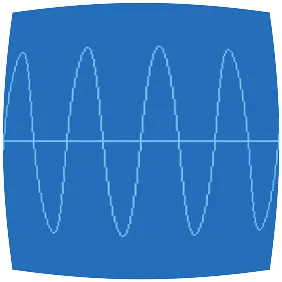You’ve almost reached the exit of the cave, but the walls are getting closer together. Your submarine can barely still fit, though; the main problem is that the walls of the cave are covered in chitons, and it would be best not to bump any of them.
Day 15a
/**
* Measure the cost of traveling from the top-left corner to the bottom-right
* corner by the least-expensive path.
*/
const measure = (grid: number[]): number => {
const size = Math.sqrt(grid.length)
// Our grid is a 1D array, so make functions to look the various directions.
// These functions return an index, or alternatively something that will
// return undefined when used as a subscript.
const left = (i: number) => (i % size ? i - 1 : undefined)
const up = (i: number) => i - size
const right = (i: number) => ((i + 1) % size ? i + 1 : undefined)
const down = (i: number) => i + size
// Initial cost of reaching each cell is infinite until we start scanning.
const cost = [0, ...Array(grid.length - 1).fill(Infinity)]
for (let settled; !settled && (settled = true); ) {
// Scan left-to-right, top-to-bottom.
for (let i = 1; i < grid.length; i++) {
const c = Math.min(
(cost[left(i)] ?? Infinity) + grid[i],
(cost[up(i)] ?? Infinity) + grid[i],
)
if (c < cost[i]) {
cost[i] = c
settled = false
}
}
// Scan right-to-left, bottom-to-top. This is an optimization over putting
// the right/down checks in the first loop, for the domino effect.
for (let i = grid.length - 2; i; i--) {
const c = Math.min(
(cost[right(i)] ?? Infinity) + grid[i],
(cost[down(i)] ?? Infinity) + grid[i],
)
if (c < cost[i]) {
cost[i] = c
settled = false
}
}
}
// Every cell now contains the minimum cost for traversing from the start to
// that cell.
return cost[cost.length - 1]
}
export const d15a = ({input = inputs.d15}: {input: string}) => {
const grid = input.match(/\S/g).map(parse10)
return measure(grid)
}
Example:
Mine:
Day 15b
const expand = (grid: number[], z: number) => {
const size = Math.sqrt(grid.length)
const big = []
for (let gy = 0; gy < z; gy++) {
for (let gx = 0; gx < z; gx++) {
for (let y = 0; y < size; y++) {
for (let x = 0; x < size; x++) {
const i = y * size + x
const j = gy * size * size * z + y * size * z + gx * size + x
const c = grid[i] + gy + gx
big[j] = c % 9 || 9
}
}
}
}
return big
}
export const d15b = ({input = inputs.d15}: {input: string}) => {
const grid = input.match(/\S/g).map(parse10)
return measure(expand(grid, 5))
}
Example:
Mine:
